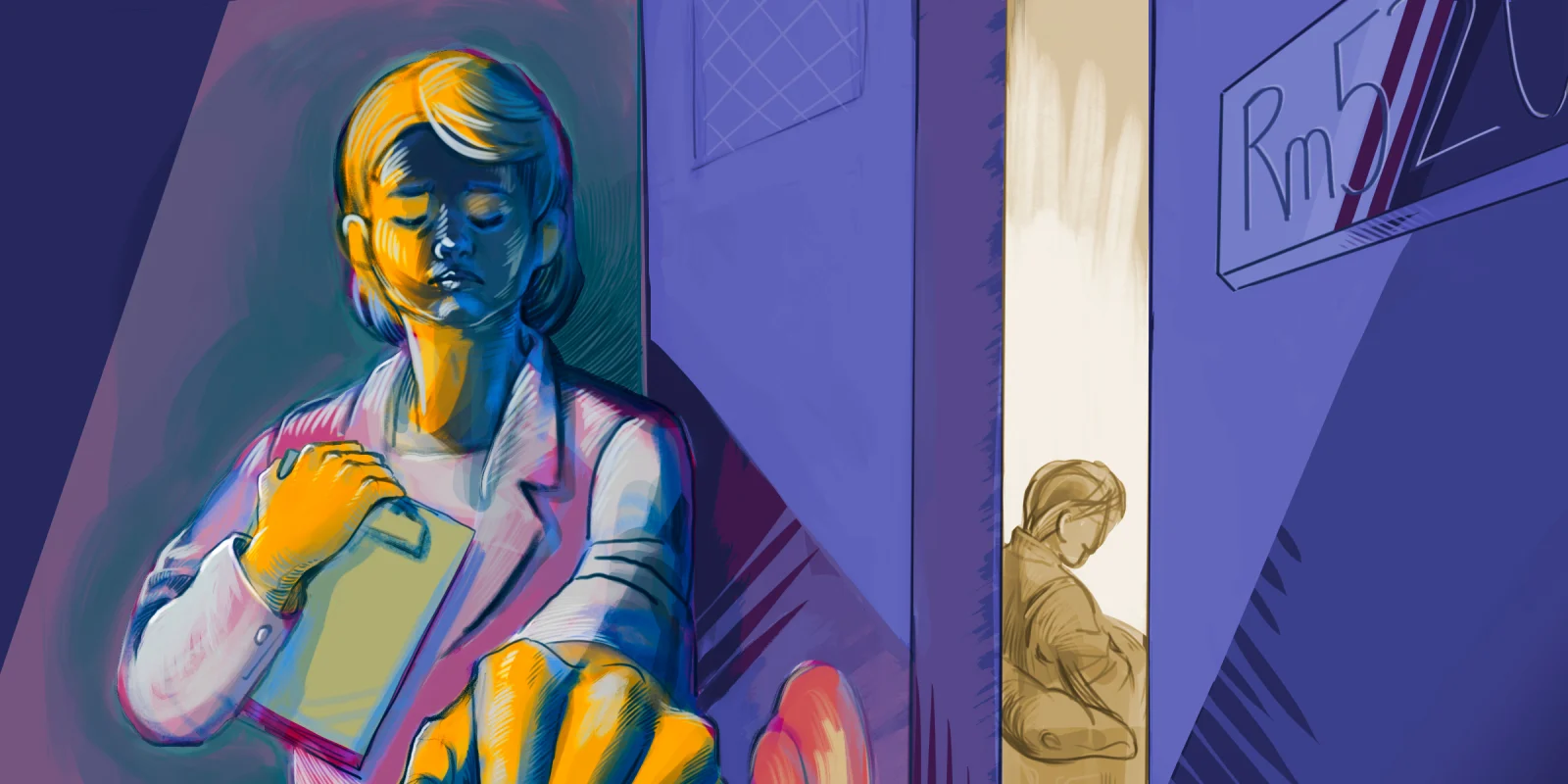My first admission was Ms. J, a little old lady who fell. She had a history of alcohol use disorder and told us that she had relapsed two weeks ago. While intoxicated, she had fallen and found herself unable to get up. Her admission labs showed an anion gap of 23. In taking care of Ms. J, I realized that there were some problems I knew how to deal with, and other problems that were not so easily analyzed or treated.
I knew, for example, how to help her anion gap metabolic acidosis. My pocket textbook told me just how to approach it. And I knew that she needed to be admitted. What I did not know, however, was how to take care of her as a person. When I met her in the crowded, noisy ED, she was wrapped in clean white hospital sheets, but the sheets could not contain the overwhelming reek of urine emanating from her body. I felt both disgust and pity. I had to visit her often to assess her for alcohol withdrawal symptoms, but I never wanted to stay longer to talk to her because of the smell. She could not stand up to go to the bathroom, so while she waited in the ED for another two days, she had no choice but to continue to soil herself. I felt that I should help: could I take her to the ED bathroom and clean her? Could I change the soaked absorbent pads? Who was her nurse? Could I call the patient placement service to advocate for her? She was so helpless, unable to even sit up from the stretcher. I felt helpless too — I didn’t know how to change a patient, find the right nurse or tech, or find her a bed upstairs. Even worse, I knew that I did not want to change her. I didn’t want to see her wrinkled, dirty, reeking body. I just wanted to avoid her and the problems she posed. It was without question that if I were her, I would find my conditions intolerable — not only the physical ailment but also the loss of basic dignity. And if she were my grandmother, I would have been outraged that her care team could leave her in such a state. But still, I did nothing.
After three days, Ms. J finally came upstairs. Her nurse gave her a thorough bath and when I saw her in her new room, she almost seemed normal. But, the next day, the nurse discovered multiple large ulcers on her sacrum and heel. I had never seen a full view of her back because I did not know how to turn her in bed and she was too weak to turn herself. I was riddled with guilt: had I missed these ulcers? Had I worsened them by not helping her turn and change and stay clean in the ED? It was horrible that she was sick, but the idea that I had participated in making her sicker was even more horrible.
I started thinking more and more about who Ms. J was as a person. Initially, she told us she had only lain on the ground overnight — but with pressure ulcers like hers, and the powerful smell of human waste she had come in with, it seemed more likely that she had lain on the ground for many days but did not want to tell us. She seemed so alone. No one ever came to visit her during her one-week stay with us, though it may have been self-imposed. She never said so, but I could see the shame and self-reproach in her face when she spoke to me about her alcohol use, her poor relationship with her sister, and her sickness. There was a deep wound in this woman’s life that reached far beyond this admission.
Taking care of Ms. J elicited many emotions for me. I felt appalled that we could not provide her the basic dignity of hygiene. I felt ashamed that I did not want to personally do more to help provide that care, and that our collective failure as a hospital to clean and turn her caused and/or worsened her wounds. I was grieved by how alone, unhappy, and ashamed she seemed, drinking by herself in her apartment, and how she had ended up alone in the hospital without a single visitor. With the care that she received in the hospital from wound care and physical therapy, she recovered enough to go to a physical rehabilitation facility, but I wonder what kind of life she will go back to after she leaves rehab. It is a thought that troubles me but seems to have a solution that falls far outside the bounds of what I can or should do as a provider.
Some of my cognitive dissonance about Ms. J can be alleviated by improving myself as a provider, but some of it is, I know, beyond the ability of just one person to solve — at least at this particular moment. I can’t solve depression and substance use in the elderly. I can’t solve the chaos in the ED. I can’t solve Ms. J’s life. But what I can do, I should. I can learn to turn, clean, and change patients; I can learn who the right people are to help me with tasks I can’t do on my own; and I can encourage my patients to find hope and direction for the future.
Ashley Wu is a fourth-year medical student at Weill Cornell Medical College. She plans to specialize in psychiatry and, in her spare time, enjoys baking sourdough, finger crocheting, and attempting various arm balance yoga poses. Ashley is a 2020–2021 Doximity Op-Med Fellow.
All names and identifying information have been modified to protect patient privacy.
Illustration by April Brust






